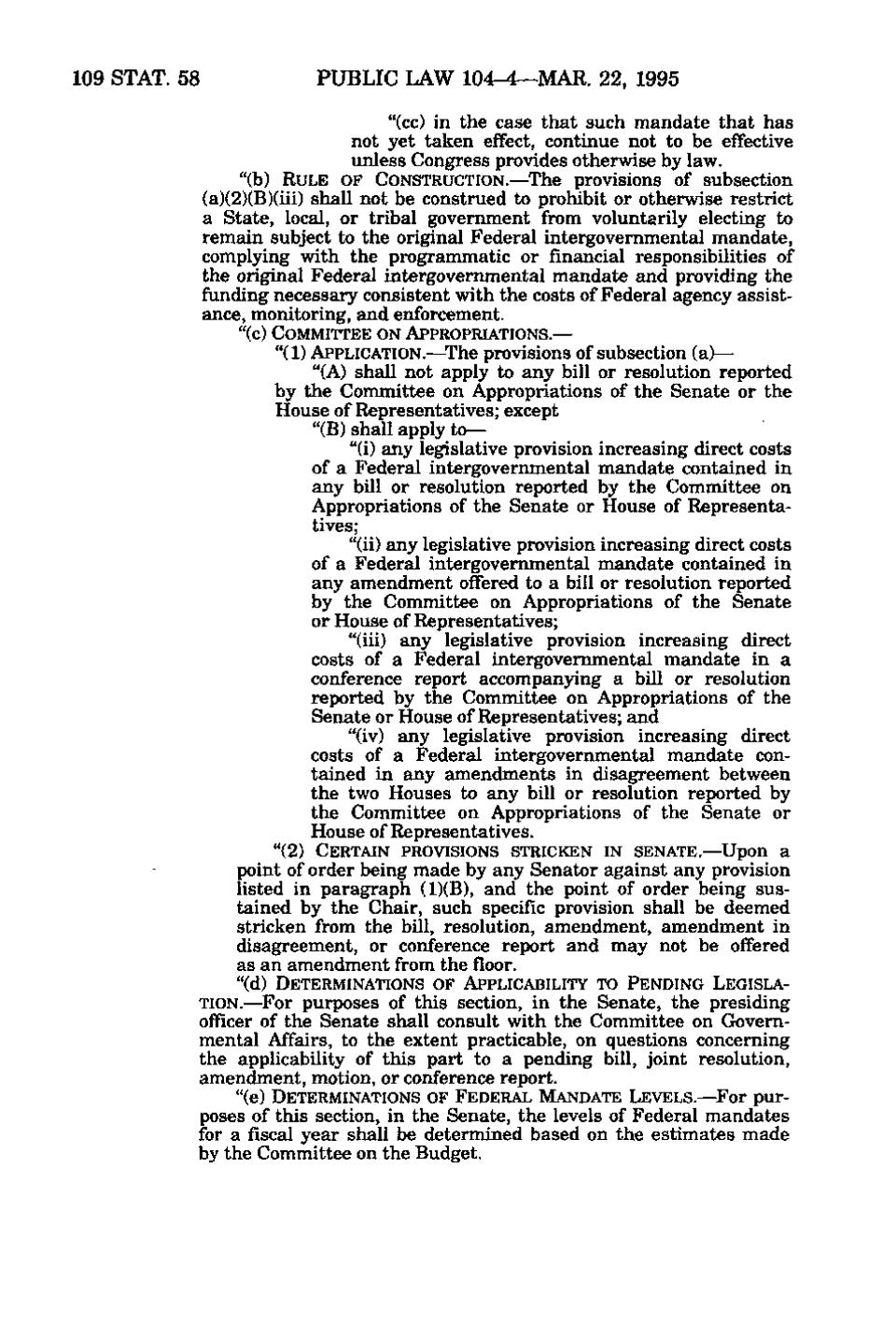109 STAT. 58 PUBLIC LAW 104-4 —MAR. 22, 1995 "(cc) in the case that such mandate that has not yet taken effect, continue not to be effective unless Congress provides otherwise by law. "(b) RULE OF CONSTRUCTION. —The provisions of subsection (a)(2)(B)(iii) shall not be construed to prohibit or otherwise restrict a State, local, or tribal government from voluntarily electing to remain subject to the original Federal intergovernmental mandate, complying with the programmatic or financial responsibilities of the original Federal intergovernmental mandate and providing the funding necessary consistent with the costs of Federal agency assistance, monitoring, and enforcement. "(c) COMMITTEE ON APPROPRIATIONS.— "(1) APPLICATION. — The provisions of subsection (a)— "(A) shall not apply to any bill or resolution reported by the Committee on Appropriations of the Senate or the House of Representatives; except "(B) shall apply to— "(i) any legislative provision increasing direct costs of a Federal intergovernmental mandate contained in any bill or resolution reported by the Committee on Appropriations of the Senate or House of Representatives; "(ii) any legislative provision increasing direct costs of a Federal intergovernmental mandate contained in any amendment offered to a bill or resolution reported by the Committee on Appropriations of the Senate or House of Representatives; "(iii) any legislative provision increasing direct costs of a Federal intergovernmental mandate in a conference report accompanying a bill or resolution reported by the Committee on Appropriations of the Senate or House of Representatives; and "(iv) any legislative provision increasing direct costs of a Federal intergovernmental mandate contained in any amendments in disagreement between the two Houses to any bill or resolution reported by the Committee on Appropriations of the Senate or House of Representatives. "(2) CERTAIN PROVISIONS STRICKEN IN SENATE.— Upon a point of order being made by any Senator against any provision listed in paragraph (1)(B), and the point of order being sustained by the Chair, such specific provision shall be deemed stricken from the bill, resolution, amendment, amendment in disagreement, or conference report and may not be offered as an amendment from the floor. "(d) DETERMINATIONS OF APPLICABILITY TO PENDING LEGISLA- TION. —For purposes of this section, in the Senate, the presiding officer of the Senate shall consult with the Committee on Governmental Affairs, to the extent practicable, on questions concerning the applicability of this part to a pending bill, joint resolution, amendment, motion, or conference report. "(e) DETERMINATIONS OF FEDERAL MANDATE LEVELS. — For purposes of this section, in the Senate, the levels of Federal mandates for a fiscal year shall be determined based on the estimates made by the Committee on the Budget.
�
